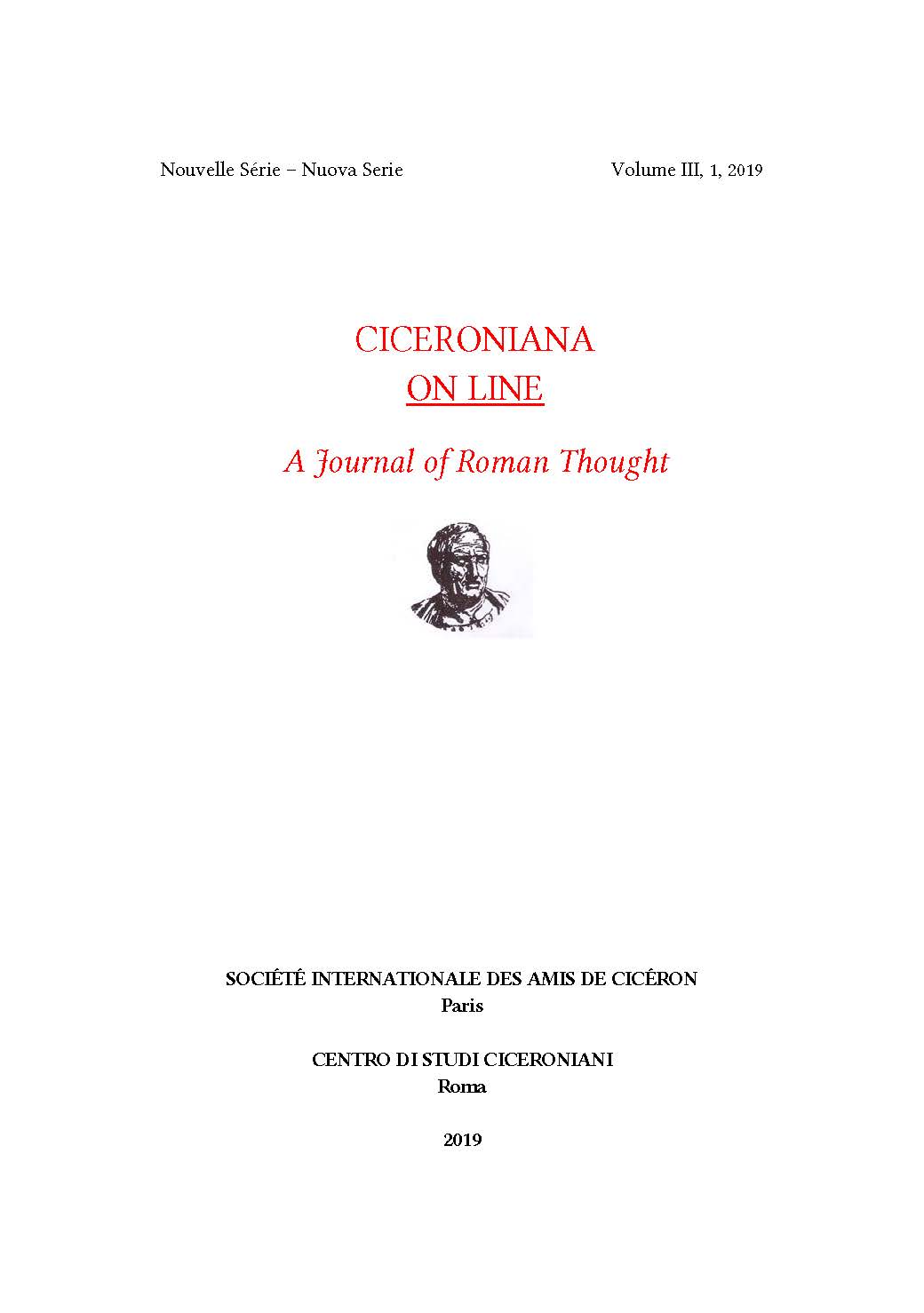Who was Cicero’s regina?
DOI:
https://doi.org/10.13135/2532-5353/3521Parole chiave:
Cicero’s letters, regina, Clodia Metelli, Transtiberine propertyAbstract
The paper questions the assumption that the woman referred to as regina in Cicero’s letters to Atticus of 44 BC is Cleopatra VII. The paper argues that there are historical grounds for doubting that Cleopatra and her son were in Rome in 44 BC, and it suggests that the term regina is more likely to be a pseudonym than a title. By consideration of other nicknames used by Cicero, the paper posits Clodia Metelli as the regina. The paper then analyses Cicero’s comments about the regina in the light of this new identification and concludes that Cicero, having struggled in 45 BC to find a suitable property near Rome to serve as a personal retreat and to house a shrine to his recently deceased daughter Tullia, engaged in negotiations to buy Clodia’s Transtiberine horti in early 44, but withdrew his offer after a personal disagreement with Clodia. In addition, Cicero’s reference to Caesar ille (Att. 14, 20, 2), previously identified as Cleopatra’s son, should be understood as mocking Octavius’ recent adoption of Caesar’s name.
L’article remet en question l’hypothèse selon laquelle la femme appelée regina dans les lettres de Cicéron à Atticus de 44 av. J.-C. serait Cléopâtre VII. L’article revendique qu’il y a des raisons historiques de douter de la présence de Cléopâtre et de son fils à Rome en 44 av. J.-C., et suggère que le terme regina a plus de chances d’être un pseudonyme qu’un titre. En prenant en considération d’autres surnoms utilisés par Cicéron, l’article propose Clodia Metelli comme étant la regina. L’article analyse ensuite les commentaires de Cicéron au sujet de la regina à la lumière de cette nouvelle identification et conclut que Cicéron, ayant lutté en 45 avant J.-C. pour trouver une propriété convenable près de Rome pouvant servir de lieu de retraite personnel et abriter un sanctuaire pour sa fille Tullia récemment décédée, s’engagea dans des négociations en vue d’acheter les horti de Clodia dans la région Transtibérine au début de 44, mais retira son offre après un différend personnel avec elle. De plus, la référence de Cicéron à Caesar ille (Att. 14, 20, 2), précédemment identifié comme le fils de Cléopâtre, doit être comprise comme se moquant de l’adoption récente du nom de César par Octave.
Downloads
##submission.downloads##
Pubblicato
Come citare
Fascicolo
Sezione
Licenza
Gli autori che pubblicano su questa rivista accettano le seguenti condizioni:
- Gli autori mantengono i diritti sulla loro opera e cedono alla rivista il diritto di prima pubblicazione dell'opera, contemporaneamente licenziata sotto una Licenza Creative Commons - Attribuzione che permette ad altri di condividere l'opera indicando la paternità intellettuale e la prima pubblicazione su questa rivista.
- Gli autori possono aderire ad altri accordi di licenza non esclusiva per la distribuzione della versione dell'opera pubblicata (es. depositarla in un archivio istituzionale o pubblicarla in una monografia), a patto di indicare che la prima pubblicazione è avvenuta su questa rivista.


 Ciceroniana On Line è riconosciuta dall'ANVUR (Agenzia Nazionale di Valutazione del sistema Universitario e della Ricerca) come rivista di CLASSE A per le Scienze dell’antichità, filologico-letterarie e storico-artistiche (
Ciceroniana On Line è riconosciuta dall'ANVUR (Agenzia Nazionale di Valutazione del sistema Universitario e della Ricerca) come rivista di CLASSE A per le Scienze dell’antichità, filologico-letterarie e storico-artistiche ( La rivista è inclusa in DOAJ. L'elenco delle riviste DOAJ è disponibile all'indirizzo
La rivista è inclusa in DOAJ. L'elenco delle riviste DOAJ è disponibile all'indirizzo  La rivista è indicizzata in
La rivista è indicizzata in  La rivista è inserita in ERIH PLUS. L'elenco ERIH PLUS delle riviste è disponibile all'indirizzo
La rivista è inserita in ERIH PLUS. L'elenco ERIH PLUS delle riviste è disponibile all'indirizzo 

